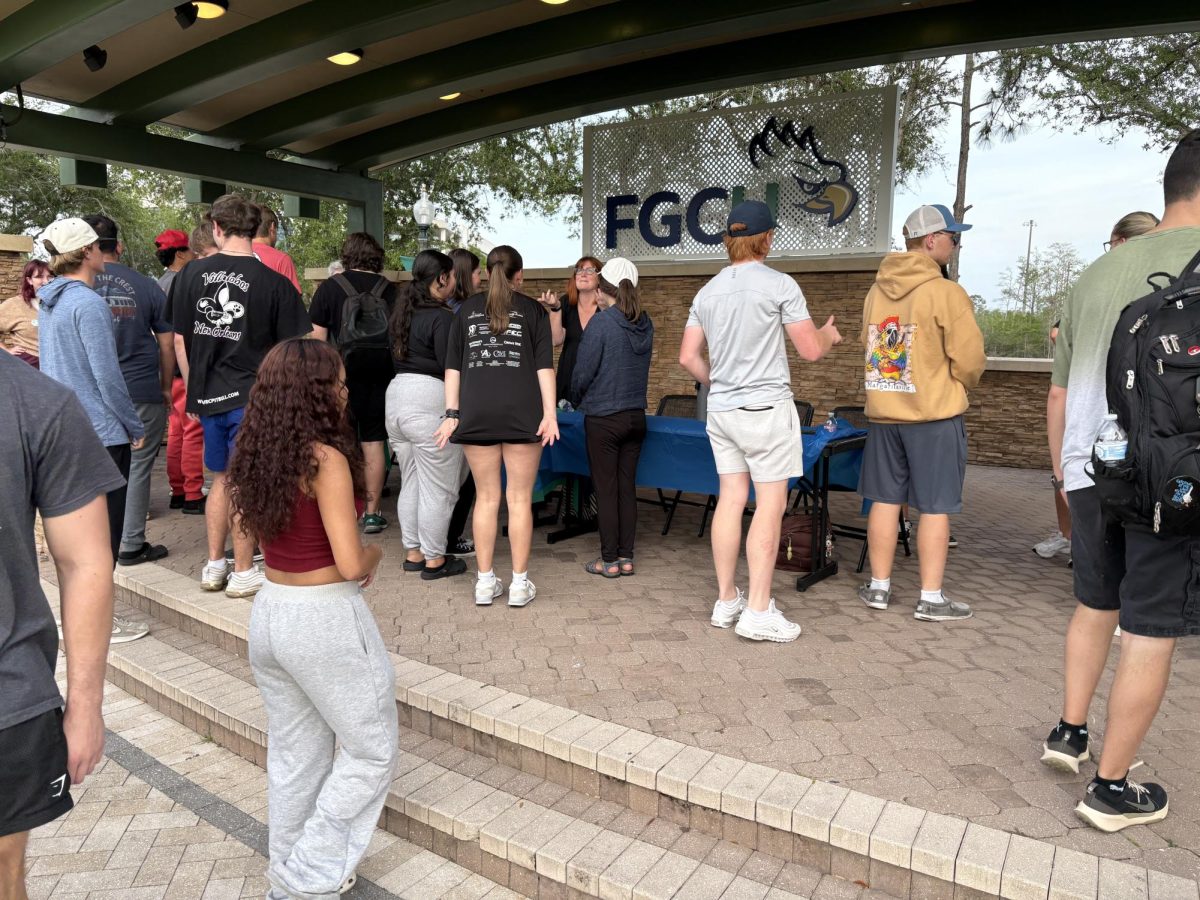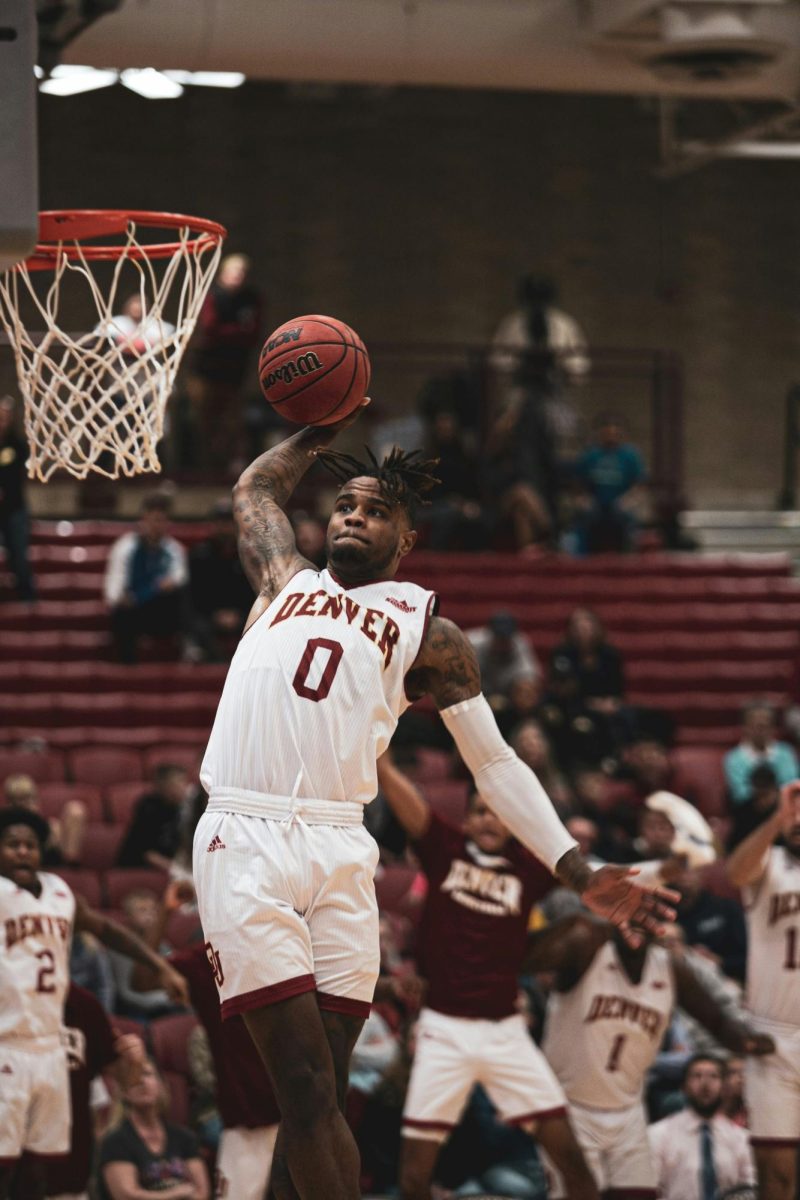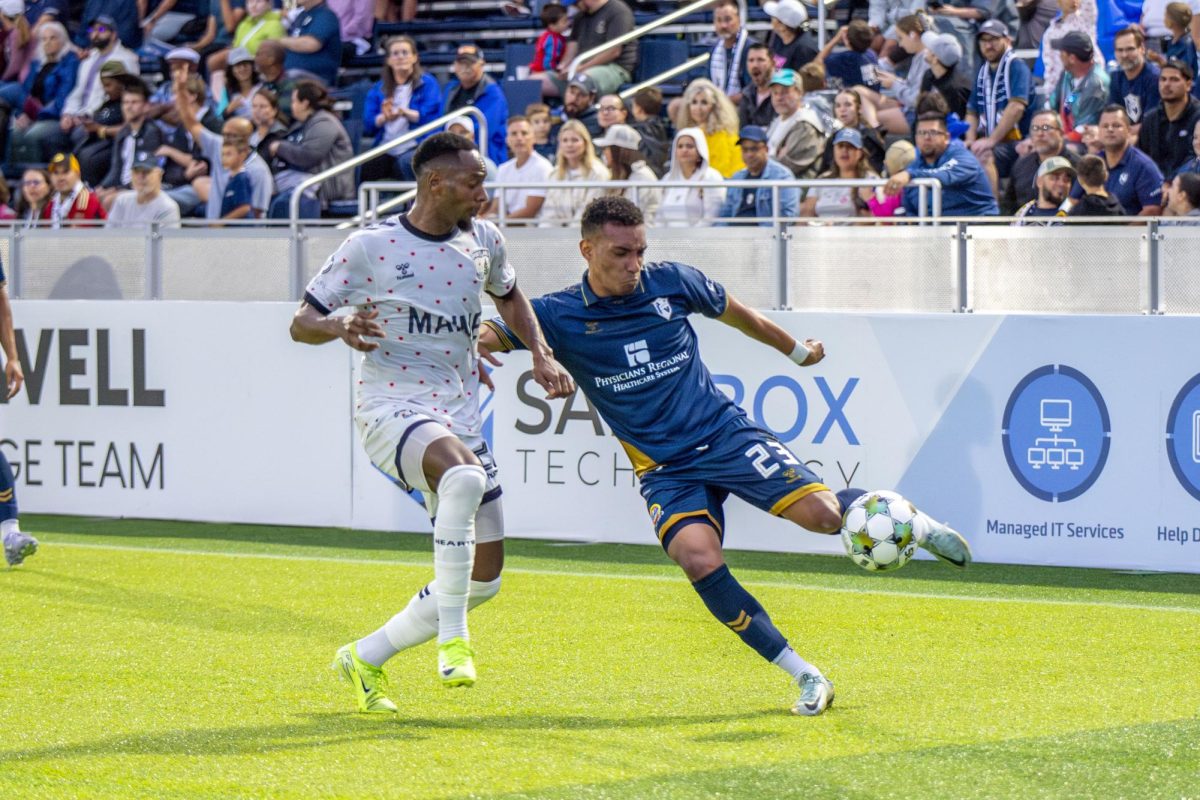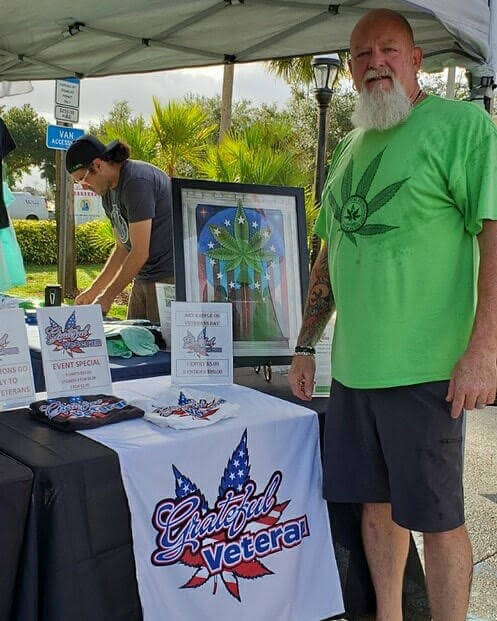By Brooke Stiles
Assistant News & Features Editor
The camaraderie of the Navy elevated Jeffrey DeMond’s energy. The feeling of team contribution and pushing one another acted as the glue to his positive attitude while serving. It was one of the reasons he spent 20 years climbing the ranks.
DeMond was a Senior Chief Petty Officer, the eighth rank in the U.S. Navy when he couldn’t bear his ankle pain and had to go to sickbay. He was told he had to have surgery, be put on pain and PTSD medication, and would be active after 16 weeks of recovery. During rehab for his left ankle, his right ankle swelled up, and he had to have another surgery. He was set back another 16 weeks and prescribed more pain medication.
Complications with the second surgery pushed DeMond further into the recovery corner – a corner that caused him to lose the camaraderie that brought him close to the Navy and forced him to retire.
DeMond returned to his hometown in Illinois in 2006 and continued his rehab and recovery. After back-to-back ankle surgeries, seven deployments, and more operations to come; DeMond thought of his opioid use as medication. It wasn’t until years after he was prescribed opioids that his cousin came back from college and told him he was doing the opioid nod that he thought of it as a problem.
“I told him I don’t want to hear this from you I did 20 years in the Navy, and I have problems,” DeMond said. “He told me everybody’s got problems, but you have another problem — you’re addicted to opioids.’”
The U.S. Department of Veterans Affairs (USDVA) released findings that veteran patients are seven times more likely than commercially insured patients to be diagnosed with opioid use disorder. It also states people who are on a prescription opioid regimen with co-occurring psychiatric conditions (PTSD, for example) are at increased risk of suicide.
DeMond’s days of creating duty assignments and managing service men and women turned into a regime of opioids and taking care of his stepchildren while his second wife traveled. Veterans Affairs (VA), an agency that provides healthcare to veterans, declared DeMond 100% disabled, which made him void of any responsibility besides taking his medication and being there for the kids when they returned from school.
“I had to go back to the doctor every three to six months, but other than that [the VA] just mailed me my medication,” he said. “So, it perpetuated the opioid cycle I was on just because of ease of use and not for anything else but the dependency. I never had to worry about whether I was going to have my medicine or not because it was always being mailed to me in mass quantities, like 90 at a time of 120-milligram morphine pills.”
MS CONTIN, an extended-release pain medication used to manage around-the-clock chronic pain, according to the FDA’s website, was just one of the many medications DeMond was on. Treatment with this drug typically starts at 15 mg every 8 or 12 hours, but for patients who are considered opioid-tolerant (those being treated with certain mg of opioids daily for longer than a week) are given daily doses of 120 mg.
He says his whole family knew he was addicted, but nobody ever said anything.
“You know, there’s an opioid crisis out there (Illinois), and I returned to a big family (his birth/extended family) who already had five members go to rehab for opioids,” he said. “I was being medically treated; those guys were pill-seekers. I felt like I was different until I wasn’t, ya know?”
At this point, DeMond was using his medication in other ways to get the relief he felt he needed.
“After some time on that kind of medication, I don’t think you can use it correctly anymore,” he said. “It’s not made for long term use. So, when you’re not getting the relief you need, and you know, it’s embarrassing to say, but I crushed pills and chewed them up — whatever I could do to get them in my body faster.”
His cousin noted DeMond’s head drooping as if his neck no longer had muscles and told him he needs to figure out his opioid problem. He recommended DeMond use cannabis, so he started researching it and how it affects your body and pain control.
“I found research that was all from Israel, and it talked about using cannabis and opioids in combination so you could take half the amount of opioids right off the bat,” Demond said.
Within two months, DeMond says he used cannabis and opioids to cut his opioid dose in half. He went back to his doctor and told him he wanted to use cannabis to come off the rest of his opioids.
By this time, it was 2008 and he was still in Illinois. Medical marijuana wasn’t legal there at that time. So, his doctor said, “I don’t think we can do it.”
DeMond told his doctor that he already was and gave back half the medication.
“There was no medical marijuana in Illinois, it was all off the street, but once I was able to break half that cycle, I was determined because, you know, I was called out and it made me realize,” he said. “I did a little bit more research and found that there are thousands of other veterans who are overmedicated, so now I’m pissed, and I want to come off these drugs.”
The fewer opioids DeMond used, the more he wanted to ingest cannabis to wean himself off opioids consciously.
“If you treat it like medicine and use it as medicine, you’ll feel the benefits from it, like medicine,” he said.
DeMond decided he really liked cannabis when he started to feel again.
“The good thing about cannabis is it makes yourself aware of your own feelings, whereas when I was on all those opioids and all the central nervous system depressants and the mood enhancers and stabilizers to make me feel better, I felt nothing,” he said as his big, blue eyes filled with water. “I would say whatever I wanted, whenever I wanted. I had no feelings other than spurts of anger.”
Tears fell down the face of the 6’4, bald, and gray-bearded man who has tattoos and wears stainless steel hoop earrings as he talked about losing his sister and a cousin to heroin overdoses. He paused as he remembered how close he was to death himself and took a deep breath.
“When I was on opiates and benzodiazepines and central nervous system depressants and all that other s— I couldn’t get my words from my brain to my mouth,” he said. “I would actually stutter for the word I was looking for, and people who knew me would answer for me, and that was a trigger.”
DeMond said his second wife divorced him in 2009. He got together with his current wife, Tara DeMond, the same year.
“His triggers became my triggers,” Tara Demond said. “Jeff would be so angry just over picking up his prescriptions. [He would] cuss out people at the pharmacy, the guy that might have parked too close to us – just anybody and anything made him angry. We went to multiple doctor’s appointments, months of physical therapy, chiropractors, psychiatrists – it was our life. When we weren’t at an appointment, Jeff was usually sleeping or in pain.”
As he continued to use cannabis, he became more aware of his outbursts, and it pushed him to try harder to make a change within himself.
“I would have outbursts at Wal-Mart and call people names and all kinds of dumb stuff,” Demond said. “I thought to myself I can’t keep doing this, so I used cannabis and reconnected to the music that I liked and listened to. I tried to help my outbursts by wearing Grateful Dead shirts because I thought how’s anybody going to take this 6’4 man seriously if I’m wearing a tie-dye dancing bear shirt. So, when I felt myself starting to get mad, I’d go dude, it doesn’t even matter.”
Jeff and Tara got married in 2011 and moved to Florida in 2014. Becoming opioid-free brought DeMond back to the carefree and loving person that he was before addiction.
In 2018, DeMond created The Grateful Veteran, a non-profit organization focused on educating veterans about medical cannabis as an alternative to pharmaceuticals. The organization runs on the belief that alternative medicine can significantly decrease veteran deaths by overdose and suicide.
The USDVA acknowledges that opioids, particularly when combined with benzodiazepines, which are used to treat PTSD, are associated with the fatal controlled prescription overdose issue in the United States. DeMond wants to make veterans aware of this issue by spreading his story and education on how cannabis affects the body and pain control.
“Now that Jeff isn’t doing physical therapy three days a week with a couple of doctor’s appointments in [between], we have time to help others,” Tara Demond said. “We are more active and was able to start a non-profit to help veterans like Jeff.”
In a year, The Grateful Veteran has helped about 150 veterans qualify for their medical marijuana card at a reduced cost. The organization raises money through merchandise and donations by vending at Florida concerts and events to help pay a portion of the medical marijuana card fees. DeMond also develops relationships with cannabis clinics to connect veterans to doctors who will certify them at a reduced cost.
“I helped a guy from the Disabled American Veterans Association get cannabis because he said he drank too much, was on opioids, and was always pissed off,” said DeMond. “[When I saw him again], he had a totally different color aura around him. That’s why I do this because it’s so rewarding for me to see that kind of success in somebody.”
The warmth that Jeff feels from helping veterans extends to Tara as they continue their new life without opiates.
“Our love was always strong, but now that we have been through the bad and the ugly, we get to enjoy our love and time together without opiates running our life,” Tara Demond said. “I see happiness in Jeff’s face – we love and laugh with each other every chance we get [because] I know Jeff would not be with me today if he would not have found cannabis.”
Categories:
The Grateful Veteran: once addicted to opiates, this veteran says that marijuana saved him
November 11, 2019
EN Photo by Brooke Stiles. Veteran, Jeffrey Demond, stands next to The Grateful Veteran tent at an event. In 2018, DeMond created The Grateful Veteran, a non-profit organization focused on educating veterans about medical cannabis as an alternative to pharmaceuticals. Demond and the organization run on the belief that alternative medicine can significantly decrease veteran deaths by overdose and suicide.
Story continues below advertisement
2
0
More to Discover





























Nicholas • Nov 11, 2021 at 9:37 am
Thank you, Jeff and Tara, and thank you Brooke for a great write-up on an important issue. I pray for more of these types of stories.